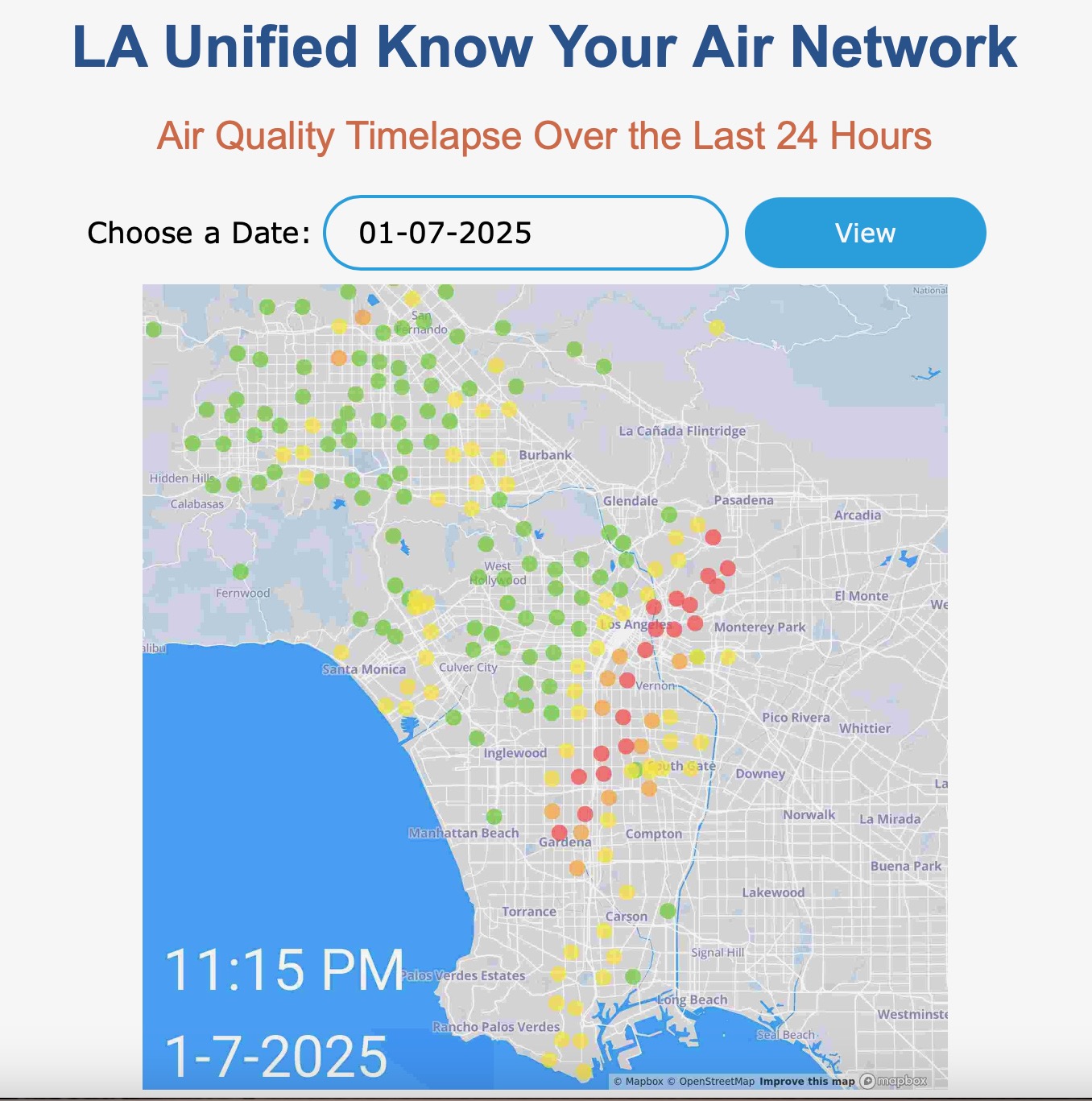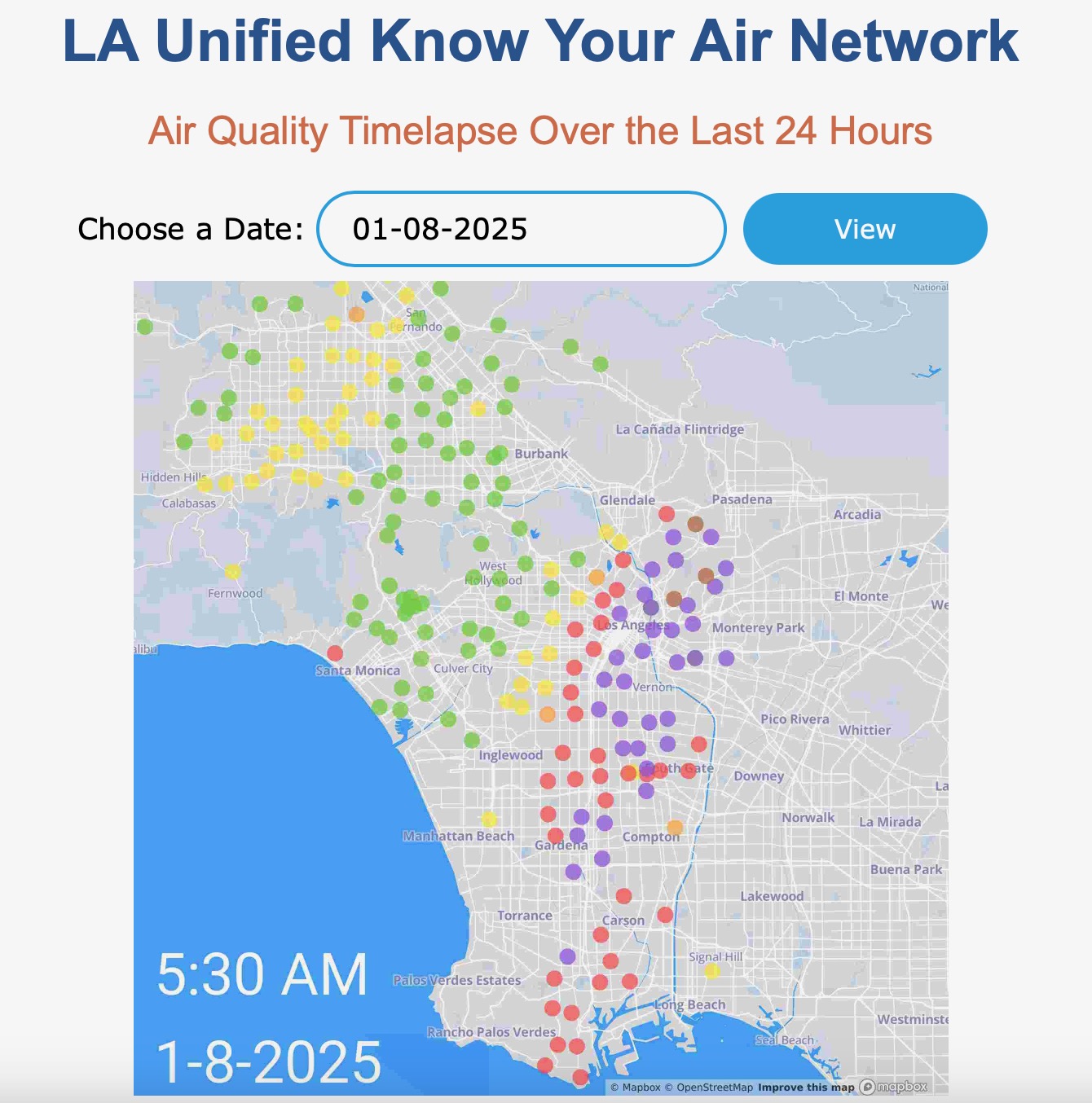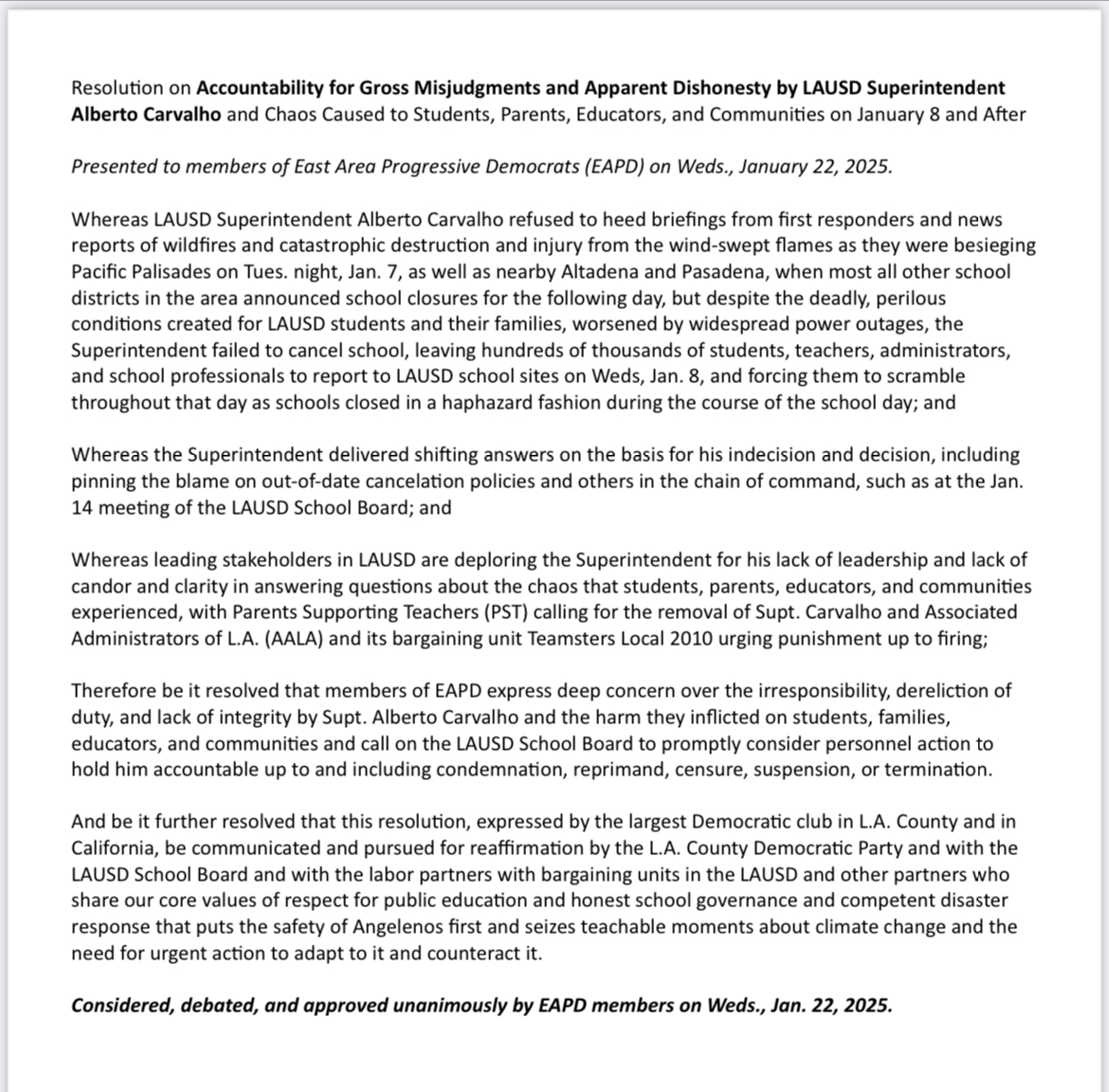Comments
FIRES AFTERMATH - As the Palisades and Eaton fires engulfed Los Angeles and nearby Altadena on the night of January 7, air-quality sensors installed over the past several years at L.A. public schools began to report severe danger.
Angry clouds thick with ash and toxic particles churned up by hundreds of burning buildings, vehicles, and their contents mushroomed over the city.
Dangerous levels of air pollution, indicated by red dots on air-quality readings supplied by many of the hundreds of LAUSD sensors, registered quickly on the night of Tues., Jan. 7.

By the following morning, the blotches of very bad, even perilous contamination levels in the air had worsened from red to purple across the Eastside and Northeast L.A. all the way south to Watts and San Pedro. These communities downwind from the Eaton Fire then besieging residents of Altadena, Pasadena, and Sierra Madre were facing a code-blue level of air-quality catastrophe.

Despite these readings from LAUSD’s own air-quality sensors, and outage of electric power throughout L.A. affecting students and educators, the school Superintendent Alberto Carvalho did not close the district’s schools on Weds., Jan. 8. Particularly in Eastside communities, his decision required students to go out through heavily polluted air to schools where teachers, administrators, and other school professionals likewise had to navigate unsafe air conditions and, in many cases, loss of electric power at home.
Most all other school districts in the area announced school closures on Jan. 8. But Supt. Carvalho did not. One result of the Superintendent’s decision to keep L.A. schools open was a day of chaos. Hundreds of thousands of students, teachers, administrators, and school professionals reported to LAUSD school sites on Weds, Jan. 8. They then had to scramble to arrange transport and leave as schools closed in a haphazard fashion during the course of the day.
Superintendent Carvalho delivered shifting answers about the basis for his decision to keep schools open, including pinning the blame on out-of-date cancelation policies and others in the chain of command, at the Jan. 14 meeting of the LAUSD School Board.
Key stakeholders in LAUSD deplored the Superintendent for lack of leadership and lack of clarity in answering questions about the chaos that students, parents, educators, and communities experienced. Parents Supporting Teachers (PST) called for the removal of Supt. Carvalho. Associated Administrators of L.A. (AALA) and its bargaining unit Teamsters Local 2010 urged intense scrutiny and his punishment.
On January 22, members of the East Area Progressive Democrats (EAPD), which serves neighborhoods of the “Greater Eastside” of Northeast L.A. and adjacent communities, unanimously approved a resolution expressing deep concern over the “irresponsibility, dereliction of duty, and lack of integrity” by Supt. Alberto Carvalho and the “harm they inflicted on students, families, educators, and communities.” The club called on the LAUSD School Board to “promptly consider personnel action to hold him accountable up to and including condemnation, reprimand, censure, suspension, or termination.”

Five weeks have passed since wind-whipped flames destroyed the homes, apartments, workplaces, places of worship, schools, and communities of tens of thousands of Angelenos. Reckoning about the fire response is beginning, even amidst chaos targeting federal agencies, lifelines of relief spending, and legal protections for millions of American households unleashed by the new Trump Administration. The Superintendent faces serious tests of his ability to protect public-school students in L.A. and public education itself from that executive onslaught. He also faces serious questions about the effectiveness and even the truthfulness of his immediate response last month to the unfolding disaster.
(Hans Johnson is a longtime leader for LGBTQ+ human rights, environmental justice, and public education. His columns appear in national news outlets including USA Today and in top daily news outlets of more than 20 states. A resident of Eagle Rock, he is also president of East Area Progressive Democrats (EAPD), the largest grassroots Democratic club in California, with more than 1,100 members.)
















